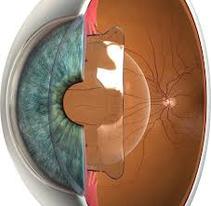 For short sighted people who want a permanent solution to get rid of their spectacles, LASIK has been a go-to choice for a long time. However, many are not suitable for LASIK - their level of shortsightedness may be too high or their corneas too thin, or too irregular, or too dry. There are also a proportion of patients in whom shortsightedness returns after their LASIK procedure. Furthermore - a process termed regression, LASIK is tissue-destructive - a thin layer of cornea is removed in reshaping its surface and it cannot be repeated more than once, if an incorrect result is obtained at the first attempt. Finally, when cataracts eventually develop, post-LASIK patients, will find that their options are limited when it comes to whether they can have premium Intra Ocular Lenses (IOLs) to enable them to remain spectacle free after cataract surgery. This is due to the higher order aberrations created by the laser procedure (from unpreventable tiny movements of the eye during the laser re-shaping process). So a procedure that frees you from glasses in your younger years may actually reduce your chances of being spectacle free in the second half of your life.  However, shortsighted people can choose another procedure, known as ICL (or Implantable Collamer Lens/ Intraocular Contact Lens or Phakic IOL). The ICL procedure does not have any of the above disadvantages of LASIK and has a number of additional benefits that may give it an advantage over LASIK, as explained yesterday at a meeting of the American Academy of Ophthalmology, in Chicago. Click the button below to access the link to the AAO webpage: Click the button below to learn more about the ICL
1 Comment
Today, 2 of our patients became the first to receive a Hydrus Microstent implant in Victoria. The Hydrus is the latest MIGS device to be approved for use in Australia by the TGA (Therapeutic Goods Administration).
MIGS or, Minimally Invasive Glaucoma Surgery, is a new class of surgery which is considerably less invasive than traditional glaucoma surgery. The use of microstents and other MIGS procedures has greatly reduced the burden of eye drops in glaucoma sufferers with nearly all patients experiencing a reduction in the need for glaucoma eye drops following this type of surgery and many patients not requiring any drops at all. The surgery was performed by Dr Vincent Lee at St John of God Health Care in Warrnambool. |
AuthorDr Vincent Lee, Archives
April 2020
Categories
All
|
Proudly powered by Weebly


 RSS Feed
RSS Feed